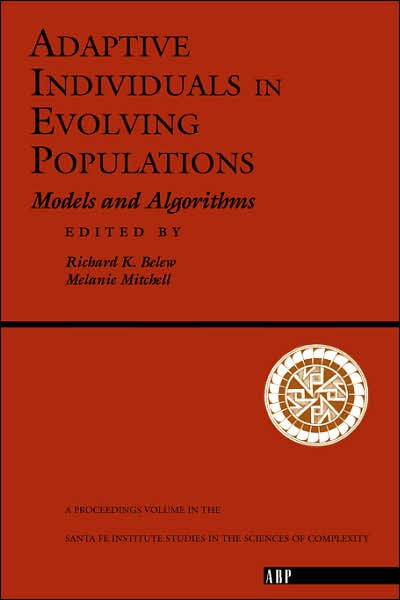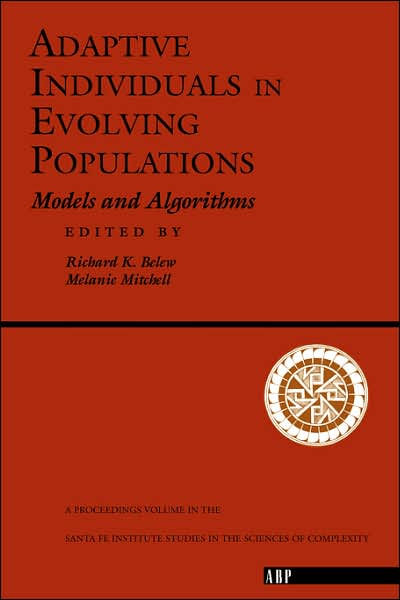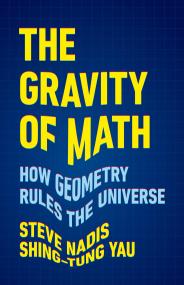Promotion
Use code MOM24 for 20% off site wide + free shipping over $45
Adaptive Individuals In Evolving Populations
Models And Algorithms
Contributors
Edited by Melanie Mitchell
Formats and Prices
Price
$71.00Format
Format:
Trade Paperback $71.00This item is a preorder. Your payment method will be charged immediately, and the product is expected to ship on or around May 22, 1996. This date is subject to change due to shipping delays beyond our control.
Also available from:
The theory of evolution has been most successful explaining the emergence of new species in terms of their morphological traits. Ethologists teach that behaviors, too, qualify as first-class phenotypic features, but evolutionary accounts of behaviors have been much less satisfactory. In part this is because maturational ”programs” transforming genotype to phenotype are ”open” to environmental influences affected by behaviors. Further, many organisms are able to continue to modify their behavior, i.e., learn, even after fully mature. This creates an even more complex relationship between the genotypic features underlying the mechanisms of maturation and learning and the adapted behaviors ultimately selected.A meeting held at the Santa Fe Institute during the summer of 1993 brought together a small group of biologists, psychologists, and computer scientists with shared interests in questions such as these. This volume consists of papers that explore interacting adaptive systems from a range of interdisciplinary perspectives. About half of the articles are classic, seminal references on the subject, ranging from biologists like Lamarck and Waddington to psychologists like Piaget and Skinner. The other half represent new work by the workshop participants. The role played by mathematical and computational tools, both as models of natural phenomena and as algorithms useful in their own right, is particularly emphasized in these new papers. In all cases, the prefaces help to put the older papers in a modern context. For the new papers, the prefaces have been written by colleagues from a discipline other than the paper's authors, and highlight, for example, what a computer scientist can learn from a biologist's model, or vice versa. Through these cross-disciplinary ”dialogues” and a glossary collecting multidisciplinary connotations of pivotal terms, the process of interdisciplinary investigation itself becomes a central theme.
Genre:
- On Sale
- May 22, 1996
- Page Count
- 550 pages
- Publisher
- Avalon Publishing
- ISBN-13
- 9780201483697
Newsletter Signup
By clicking ‘Sign Up,’ I acknowledge that I have read and agree to Hachette Book Group’s Privacy Policy and Terms of Use





























